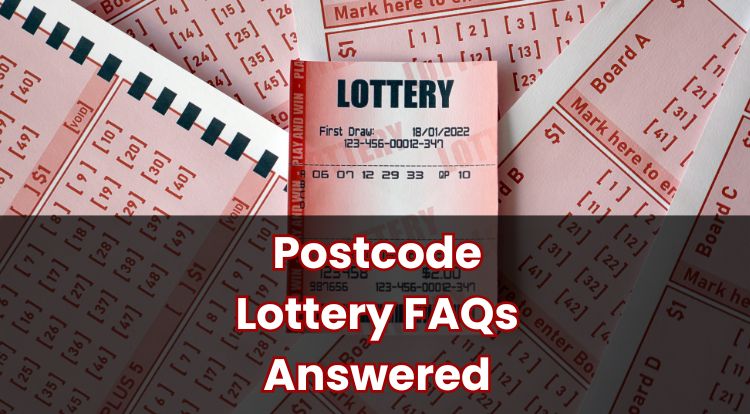What Is Edge Sorting In Casinos & Is It Illegal?
If you’ve ever wondered how some players seem to spot details others miss, edge sorting might be something that catches your interest.
This blog will break down exactly what edge sorting is, how it works in card games, and why it’s become a talking point in many UK casinos. We’ll look at a real example involving a well-known player, explore how UK law views this technique, and explain why it’s not as effective in modern casinos.
Even if you’re completely new to gambling or card games, this guide will help you understand a lesser-known method that some people have used to try and influence the outcome of games that are meant to be random.
Edge Sorting Meaning Explained
Edge sorting is a technique where someone tries to identify tiny, often unintentional differences on the backs of playing cards. These marks can come from how the cards were manufactured. For instance, the edge of one card might be slightly misaligned, or show a small difference in pattern compared to another.
A person using edge sorting isn’t looking at the faces of the cards, but at the backs—before the cards are dealt. The idea is that if they can recognise any potential patterns that consistently appear on certain high-value cards, they might try to make decisions based on that.
This is very different from strategies that rely on memory or card counting. Instead, it involves noticing physical imperfections that others most likely won’t spot.
Card manufacturers aim to make cards identical, but inconsistencies can happen. Casinos reduce the risk of this being exploited by using symmetrical card designs, rotating decks often, and training staff to avoid anything that could give away information.
Baccarat Edge Sorting Example
Baccarat is a game where players bet on whether they think the ‘player’ hand or the ‘banker’ hand will win, or if the result will be a tie.
The cards are usually dealt face down. In some past cases, players using edge sorting have asked dealers to rotate specific cards. These requests were often made to seem harmless or based on personal beliefs.
Over time, this led to the backs of high-value cards facing a different direction to the low-value ones. If the deck wasn’t reoriented or shuffled by machine, a sharp-eyed player could try to track which cards may be likely to appear next. That information could then influence how they bet.
This doesn’t mean the player knows what exact card will come next, or that they’ll win. It just gives them a slightly more informed view. Baccarat, like all casino games, is still based on chance. Edge sorting doesn’t remove that element.
The Phil Ivey Edge Sorting Case
In 2012, professional gambler Phil Ivey took part in high-stakes sessions of punto banco—a version of baccarat—at Crockfords Casino in London. He won over £7 million during those sessions. However, the casino refused to pay out, stating that he used edge sorting.
Ivey admitted to observing differences in the backs of certain cards and asking the dealer to turn high-value ones, claiming he was simply taking advantage of what was available. He said there was no cheating involved because he hadn’t touched or marked the cards himself.
The dispute went to the UK Supreme Court, which ruled in the casino’s favour. The court decided that even though Ivey hadn’t been dishonest in a traditional sense, the method he used broke the implied rules of the game. Under UK civil law, it was classed as cheating. This case clarified how edge sorting is likely to be treated legally in the UK going forward.
Is Edge Sorting Illegal?
Edge sorting isn’t named directly in the Gambling Act 2005. However, the law does define cheating broadly. According to section 42 of the Act, cheating can include using any method to try and gain an unfair advantage, whether or not physical interference is involved.
In the Phil Ivey ruling, the court made it clear that using card defects to gain an edge falls under this category. It doesn’t matter if the person believes they are simply being observant—what counts is whether their actions go against how the game is meant to be played.
Casinos in the UK, regulated by the Gambling Commission, are required to make sure games are fair. If a player is found using edge sorting or a similar method, the casino may refuse to pay out any potential winnings and can ban the player from returning. Each operator may also have their own house rules, which players agree to by playing.
Does Edge Sorting Still Work?
In UK-licensed casinos, edge sorting is now extremely difficult to use effectively. Card manufacturers have improved consistency in their designs. Dealers are trained not to accommodate any unusual requests, such as rotating specific cards, and automatic shufflers are used widely. These machines remove any set order in the cards and help eliminate any visible patterns.
Surveillance teams and floor managers also monitor behaviour during gameplay. Any actions that appear out of the ordinary, like asking for specific handling of cards or closely watching the card backs, can quickly draw attention. The combination of staff training, better equipment, and constant monitoring makes it very unlikely that edge sorting would succeed.
For those interested in learning how casino games work, it may be good to remember that all licensed casino games are designed with an element of randomness. There’s no strategy or technique that can remove that.
Players may wish to read the game rules beforehand, or speak to casino staff if they have questions. What one person sees as the best game might not suit someone else, and outcomes can differ based on game type, stakes, or format.
Play Casino Games Online at Red Casino
Red Casino holds a UK Gambling Commission licence, which means the games and the site are run to strict standards for fairness and safety. You will find a wide selection of online slots and table games, including both classic picks and fresh new options.
It is easy to sign up or log in to Red Casino to browse the full game library. Our site offers useful search tools and clear information, making it easy to find the type of game you want. Whether you prefer card games or the fun of slots, there is something for nearly every player.
Getting started is straightforward, and if you have questions about using the site or finding games, customer support is there to help.
Just as with all casino games, outcomes are random and cannot be guaranteed. Please use the tools available to set your limits and keep your gaming safe, and remember that help from organisations like Be Gamble Aware and GamCare is always on hand should you want further support.
**The information provided in this blog is intended for educational purposes and should not be construed as betting advice or a guarantee of success. Always gamble responsibly.




